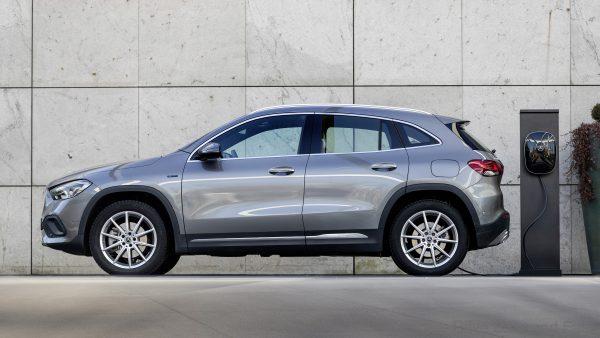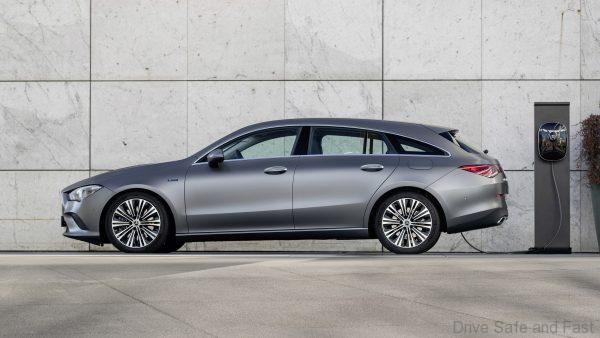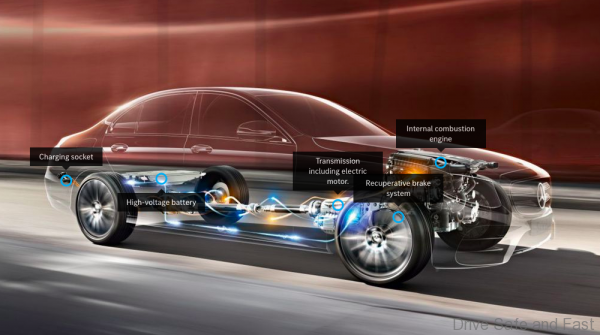Mercedes-Benz extends its EQ offering in Europe
Mercedes-Benz Malaysia has shown Malaysians how its plug-in hybrids save fuel and also provide very entertaining driving dynamics with its best selling C 350e and also the E350e. Both cars were launched in 2017 and their demand at a point outstripped supply. Why? Well, with the customised hybrid tax incentives that came from the Malaysian government and its automotive agency it was easy for Mercedes-Benz to price these cars at below their full petrol powered siblings. Then when the tax incentives ended, the sale of these cars also ended as their taxed selling prices were too high. This is why the demand for hybrids and plug-in hybrid vehicles in Malaysia today are falling.
Meanwhile, Mercedes-Benz continues to develop more plug-in hybrids for the global marketplace and here come three new models. In August last year Mercedes-Benz showed the world its compact A-Class plug-in hybrid.

PRESS RELEASE: Mercedes‑Benz Cars is continually increasing its range of plug-in hybrids under the EQ Power label. With the CLA 250 e Coupé (combined fuel consumption 1.5-1.4 l/100 km, combined CO2 emissions 35-31 g/km, combined electrical consumption 15.1-15.0 kWh/100 km)1, CLA 250 e Shooting Brake (combined fuel consumption 1.6-1.4 l/100 km, combined CO2 emissions 37-33 g/km, combined electrical consumption 15.4-14.8 kWh/100 km, and GLA 250 e (combined fuel consumption 1.8-1.6 l/100 km, combined CO2 emissions 42-38 g/km, combined electrical consumption 16.1-15.5 kWh/100 km, Mercedes-Benz is completing the range of EQ Power models in the compact-car family with the third-generation hybrid drive system. The new models can be ordered in spring of this year, with the market launch following just a few weeks later.

For the new compact vehicles with EQ Power, (electric) driving pleasure and suitability for everyday use are to the fore. This is illustrated by the models’ highlights:
- Electric operating ranges of 71-79 km (NEDC)
- Electric output 75 kW
- System output 160 kW
- System torque 450 Nm
- Alternating-current (AC) charging system up to 7.4 kW
- Direct-current (DC) charging system at max. 24 kW
- Hardly any restrictions on the load compartment.

The vehicles belonging to Mercedes-Benz’s compact car family feature transversely mounted engines. A compact hybrid traction head has been developed for the 8G-DCT dual clutch transmission which follows the same technical principles as the corresponding component on the vehicles with a longitudinally installed engine. It is a permanently excited synchronous machine as an internal rotor. The stator is permanently integrated in the traction head housing, while the low-loss wet clutch is incorporated in the motor’s rotor.
On-demand stator and rotor cooling allow use of the electric motor’s peak and continuous output without any problems.
For the first time on a Mercedes-Benz vehicle, the combustion engine is started by the electric motor – the compact hybrids do not have a separate 12-volt starter.

High system output provides for plenty of driving enjoyment
The electric machine achieves 75 kW. Together with the 1.33-litre four-cylinder engine this produces a system output of 160 kW (218 hp) and a system torque of 450 Nm. Thanks to the EQ Power of the electric motor, these vehicles respond to the accelerator very rapidly and deliver impressive performance: the A 250 e, for example, requires 6.6 seconds for the sprint from 0 to 100 km/h, and its top speed is 235 km/h (see next page for further data).
A lithium-ion high-voltage battery with a total capacity of approx. 15.6 kWh is used as an electric energy storage unit. The new compact models can be charged with alternating current or direct current. A corresponding vehicle socket is located in the right-hand side wall of the vehicles. This means that the compact plug-in hybrids can be charged at a 7.4 kW wallbox with alternating current (AC) within 1 h 45 min from 10-100 percent SoC (State of Charge). For direct-current (DC) charging at 24 kW, the battery can be charged from 10-80 percent SoC in around 25 minutes.
The batteries are supplied by the wholly owned Daimler subsidiary Deutsche ACCUMOTIVE. The high-voltage battery is water-cooled and weighs approx. 150 kg.
Clever packaging
An innovative exhaust system allows exceptionally clever packaging: to enable only minimal reduction in boot capacity compared with the sister models without hybrid engines, the exhaust ends in a centrally positioned outlet under the vehicle floor, with the rear silencer housed in the transmission tunnel. Integrating the fuel tank into the axle installation space creates additional room beneath the rear seats for the high-voltage battery.
The compact vehicles are equipped with third-generation plug-in technology. Its functions include in particular the intelligent, route-based operating strategy, taking factors such as navigation data, speed limits and route into account. The operating strategy takes into account the entire planned route and prioritises the electric driving mode for the most sensible route sections in each case.
With the launch of MBUX (Mercedes-Benz User Experience) the previous plug-in operating modes of all EQ Power models have been converted to drive programmes. That means that in every Mercedes-Benz plug-in hybrid the new drive programmes “Electric” and “Battery Level” are available. This is the case from the outset for the compact models. Maximum e-performance can be experienced in “Electric”. The combustion engine is only engaged if the driver uses kickdown on the accelerator pedal. In the “Electric” programme, the energy recovery level can also be selected via paddles behind the steering wheel. The paddles on the steering wheel enable the selection of five different recuperation levels (DAUTO, D+, D, D– and D—).
Comfort, ECO and Sport modes are also available. According to the given requirements, the driver is thus able to give priority to electric driving, place the emphasis on driving dynamics in combined drive mode or give preference to combustion mode in order to save electric range, for example.
One important comfort feature is the pre-entry climate control prior to starting a journey, which can also be activated conveniently by smartphone. The towing capacity of the compact hybrids is impressive at 1600 kg (braked).



